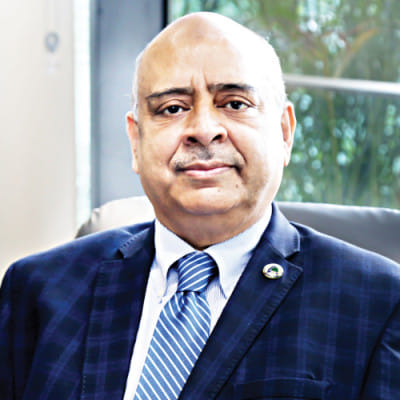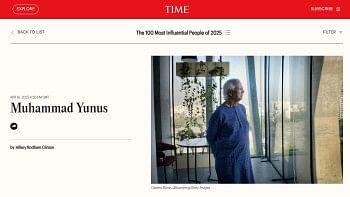First Security Islami Bank grows from strength to strength

Bangladesh has seen a gradual expansion of Islamic banking over the past three and a half decades.
The number of lenders offering banking services in keeping with shariah principles has grown in Bangladesh as a section of the population want to keep deposits with them as well as borrow.
Out of 61 banks in the country, eight private commercial banks operate as full-fledged Islamic lenders, while 18 traditional banks, including two foreign banks, are involved in shariah-compliant banking through dedicated branches.
And the Islamic banking's market share in terms of assets, financing and deposits has increased over the years.
Total deposits of the Islamic banks and shariah-compliant branches of the conventional banks stood at Tk 2.73 lakh crore at the end of December of 2019, accounting for 21.8 per cent of the total deposits in the banking industry.
Collectively, they lent Tk 2.55 lakh crore, which was nearly 25 per cent of the total credit, according to the annual report of the central bank for 2019-20.
First Security Islami Bank Ltd (FSIBL), which has been operating as a shariah-based bank for more than a decade, is registering growth in terms of deposits and investment.
In 2009, the bank had Tk 4,242 crore as deposits and Tk 3,872 crore as investment. In the last one decade, the deposit has grown to Tk 42,868 crore and investment to Tk 41,478 crore.
"This is the reflection of the confidence of our esteemed customers and the strong foundation of our bank," said Syed Waseque Md Ali, managing director of FSIBL, in an interview with The Daily Star.
The bank has so far opened 193 full-fledged branches, 122 sub-branches and 75 agent banking outlets and set up 192 automated teller machines to provide banking services to people.
"FSIBL is working towards supporting the economic development of the country," Ali said.
Despite the fast growth of Islamic banking, there is a perception among people that conventional and Islamic banking is the same. The difference lies only in what Islamic banks call profit, conventional banks term it as interest.
"This is a common perception because people do not have a complete picture of the Islamic banking system," said Ali.
"We want to show the public how Islamic banks work on the basis of shariah laws. We want to create a skilled workforce with the necessary knowledge in Shariah-based banking."
The economic rationale for eliminating riba (interest) and establishing the Islamic banking system is based on values of justice, efficiency, stability, and growth.
It is assumed that under the system of Islamic banking, the industrial and/or commercial risk is shared more equitably between entrepreneurs and the capital owners, and the returns on investment are shared among the investors on the basis of their proportionate capital.
Ali says FSIBL is run as per guidance and advice of its shariah council to ensure proper compliance with rules.
The bank organises events for the expansion of Islamic banking.
"We will continue to do so in order to achieve excellence as a modern welfare-oriented Islamic bank," he said.
Ali, a seasoned banker with more than 37 years of experience, was appointed as the managing director of the bank in March 2015. He previously worked at IFIC Bank and Dutch-Bangla Bank Ltd.
He says FSIBL, like other banks, offers a range of deposit schemes for savers.
Including its Al Wadiyah current account and Mudaraba savings account, it has products for students and working people as well.
To facilitate the expansion of businesses, FSIBL invests in various areas, including small and medium enterprises, agriculture and business run by women entrepreneurs.
And as the demand for digital banking is accelerating, the lender has expanded its footprint in the segment as well.
"We have a round-the-clock internet banking facility for customers for all types of banking activities," Ali said.
A customer can open accounts from the conveniences of their homes by filling up an electronic know your customer form through the FSIBL app.
In addition, one can use the app for all types of mobile banking services, such as fund transfer to major mobile financial service providers and paying electricity and water bills.
FSIBL has also joined the government's automated challan system to enable customers to pay 196 types of fees, tax and value-added tax.
"We have created scope for clients to pay for a variety of goods and services on all types of e-commerce platforms through our debit card," said the top executive.
The cardholders also get discounts on the purchases of goods and services from various companies.
Ali says the bank is trying to play a leading role in the overall economic growth of Bangladesh.
In 2020, the bank's financing for the import of items, namely sugar, edible oil, capital equipment, cotton, fabrics, and accessories, was around Tk 4,302 crore.
It extended finances to the tune of Tk 1,200 crore to facilitate the export of readymade garments, knitwear, processed leather goods, and agricultural products.
The bank is also working to bring remittances sent by migrant workers and Bangladeshi diaspora living abroad. Until September this year, it has channelled about $120 million in remittances.
The bank facilitates remittance transfer through almost all the global money transfer agencies such as Western Union, MoneyGram, Express Money, Placid NK Corporation, and Transfast.
FSIBL has not limited itself to business only. It plays socially responsible roles as a corporate, according to Ali.
It operates corporate social responsibility activities, which includes providing scholarships and assistance to the Bangladesh Disability Development Trust, the Bangladesh Eye Disability Welfare Trust, and the Prime Minister's Relief Fund.

 For all latest news, follow The Daily Star's Google News channel.
For all latest news, follow The Daily Star's Google News channel. 



Comments